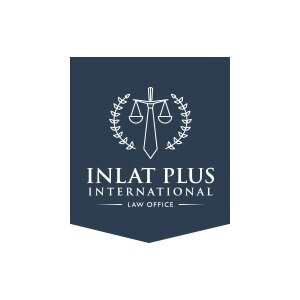Best Accounting & Auditing Lawyers in Latvia
Share your needs with us, get contacted by law firms.
Free. Takes 2 min.
Or refine your search by selecting a city:
List of the best lawyers in Latvia
About Accounting & Auditing Law in Latvia
Accounting & Auditing law in Latvia regulates financial reporting, auditing standards, and the responsibilities of companies in maintaining accurate financial records. It plays a crucial role in ensuring transparency and accountability in business operations.
Why You May Need a Lawyer
You may need a lawyer in Accounting & Auditing in Latvia for various reasons, such as resolving disputes over financial statements, ensuring compliance with local laws and regulations, handling tax implications of business transactions, and representing your interests in legal proceedings related to financial matters.
Local Laws Overview
Key aspects of local laws related to Accounting & Auditing in Latvia include the Accounting Law, the Law on the Annual Financial Statements and Consolidated Financial Statements, the Law on Auditors, and the Law on the Financial Instruments Market. These laws set out the requirements for financial reporting, auditing standards, and the qualifications and duties of auditors.
Frequently Asked Questions
1. What are the key financial reporting requirements for companies in Latvia?
Companies in Latvia are required to prepare annual financial statements in accordance with the Accounting Law and submit them to the Commercial Register. The financial statements must include a balance sheet, income statement, and notes to the financial statements.
2. Do companies in Latvia need to have their financial statements audited?
Public interest entities and certain other companies are required to have their financial statements audited by a licensed auditor in Latvia. The scope and procedures of the audit are determined by the Law on Auditors.
3. What are the penalties for non-compliance with accounting and auditing laws in Latvia?
Non-compliance with accounting and auditing laws in Latvia can result in fines, penalties, reputational damage, and even criminal liability for company officials. It is important to ensure compliance with all relevant laws and regulations to avoid legal consequences.
4. How can a lawyer help with accounting and auditing issues in Latvia?
A lawyer with expertise in Accounting & Auditing law in Latvia can provide legal advice on financial reporting requirements, represent clients in disputes over financial matters, assist with compliance issues, and offer guidance on tax implications of business transactions.
5. Can a lawyer help with tax planning and optimization in Latvia?
Yes, a lawyer with experience in Accounting & Auditing in Latvia can help clients with tax planning strategies, identifying tax optimization opportunities, and ensuring compliance with the tax laws to minimize tax liabilities and maximize tax efficiency.
6. How can I find a qualified auditor for my company in Latvia?
You can search for licensed auditors in Latvia through the Latvian Chamber of Commerce and Industry or other professional organizations. It is important to choose a qualified and experienced auditor who meets the requirements set out in the Law on Auditors.
7. Can a lawyer assist with the preparation of financial statements in Latvia?
Although lawyers do not typically prepare financial statements, they can provide guidance on the legal requirements for financial reporting, review financial statements for compliance with the law, and advise on how to address any issues or discrepancies that may arise.
8. What are the common disputes related to accounting and auditing in Latvia?
Common disputes in Accounting & Auditing in Latvia may include disagreements over the interpretation of financial information, allegations of fraud or misconduct, challenges to the accuracy of financial statements, and disputes between companies and auditors over audit findings.
9. Are there any specific regulations for auditing financial institutions in Latvia?
Yes, financial institutions in Latvia are subject to specific regulations and requirements for auditing, as set out in the Law on the Financial Instruments Market and other laws governing the financial sector. Auditors of financial institutions must comply with these regulations to ensure the integrity of financial reporting in the industry.
10. How can I stay informed about changes in accounting and auditing laws in Latvia?
You can stay informed about changes in accounting and auditing laws in Latvia by regularly consulting official sources such as the Latvian State Revenue Service, the Financial and Capital Market Commission, and professional organizations like the Latvian Chamber of Commerce and Industry. It is also recommended to seek legal advice from a qualified lawyer to ensure compliance with the latest regulations.
Additional Resources
For more information on Accounting & Auditing in Latvia, you can visit the Latvian State Revenue Service website, the Financial and Capital Market Commission website, and the Latvian Chamber of Commerce and Industry website. These resources provide valuable information and updates on regulations, guidelines, and best practices in financial reporting and auditing.
Next Steps
If you require legal assistance in Accounting & Auditing in Latvia, it is advisable to consult with a qualified lawyer who specializes in this area of law. A lawyer can provide expert advice, represent your interests in legal matters, and ensure compliance with all relevant laws and regulations to protect your business and financial interests.
Lawzana helps you find the best lawyers and law firms in Latvia through a curated and pre-screened list of qualified legal professionals. Our platform offers rankings and detailed profiles of attorneys and law firms, allowing you to compare based on practice areas, including Accounting & Auditing, experience, and client feedback.
Each profile includes a description of the firm's areas of practice, client reviews, team members and partners, year of establishment, spoken languages, office locations, contact information, social media presence, and any published articles or resources. Most firms on our platform speak English and are experienced in both local and international legal matters.
Get a quote from top-rated law firms in Latvia — quickly, securely, and without unnecessary hassle.
Disclaimer:
The information provided on this page is for general informational purposes only and does not constitute legal advice. While we strive to ensure the accuracy and relevance of the content, legal information may change over time, and interpretations of the law can vary. You should always consult with a qualified legal professional for advice specific to your situation.
We disclaim all liability for actions taken or not taken based on the content of this page. If you believe any information is incorrect or outdated, please contact us, and we will review and update it where appropriate.
Browse accounting & auditing law firms by city in Latvia
Refine your search by selecting a city.











